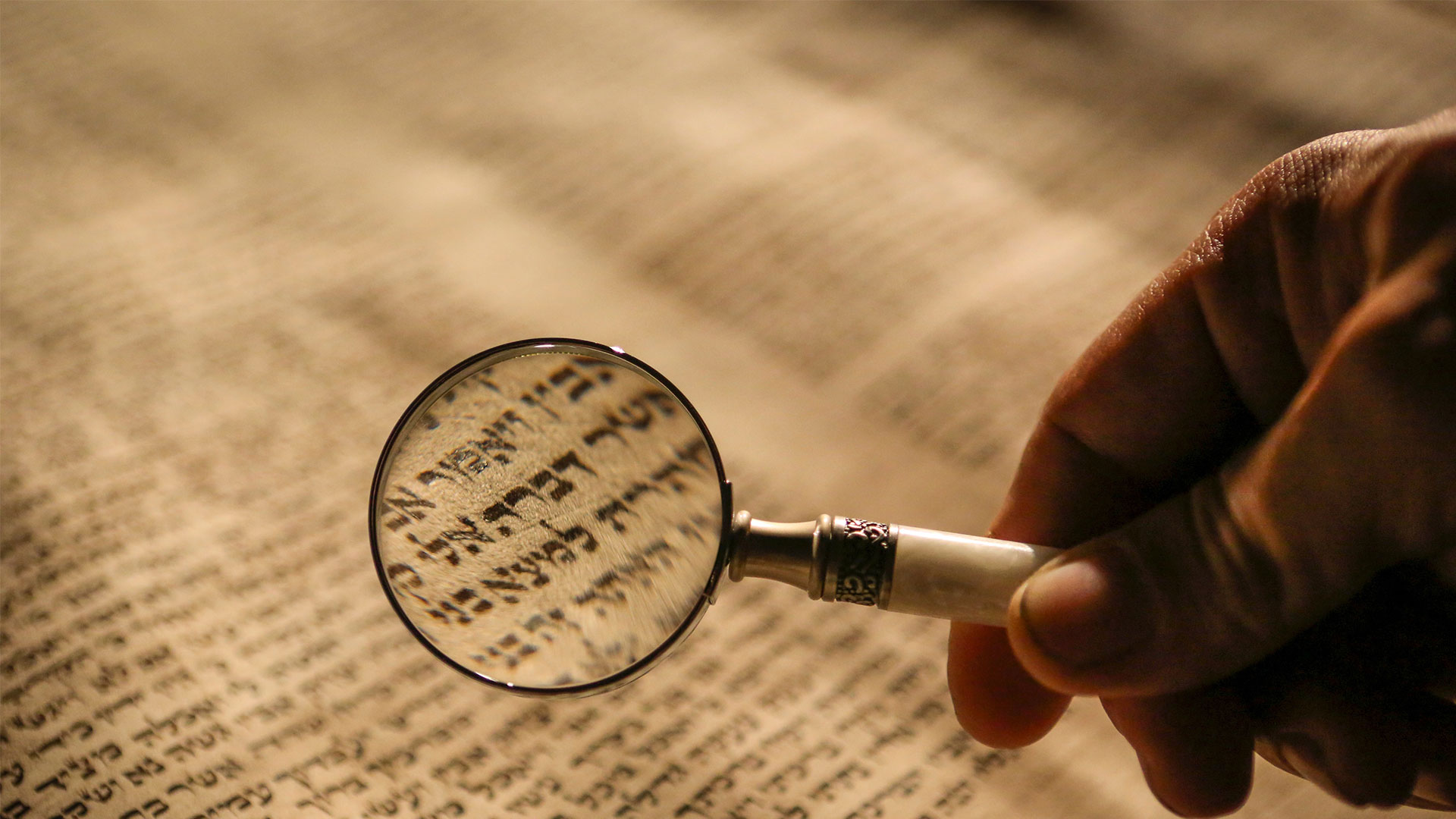Ever think about the Bible? Maybe just on public holidays, like Easter or Christmas. But have you ever wondered what’s actually in it and how it all fits together? In this piece, we’ll be asking: what is the Bible about? What does the Bible mean? And what could that mean for us today?
If so, you’re in exactly the right place. In this piece, we’ll be asking the question: what is the Bible actually about? What does the Bible mean? And what could that mean for us today?
The word ‘Bible’ is derived from the Greek word ‘biblia’, which simply means ‘books’. And that’s exactly what the Bible is: a collection of books.
But, if you’ve ever picked up a Bible or spotted one on a shelf, you might have noticed that the title also normally includes the word ‘Holy’. This hints at the true nature of the Bible: a collection of sacred writings that are highly valued by millions of people around the world.
Find out more about the Bible and the role it’s played in art, culture, law and ethics with The Bible: What actually is it? And why is it so important?

Short of time? Let’s sum up the Bible in one line:
The Bible is a book about relationships: how humans relate to each other, and how humans relate to the divine.
The Bible features at least 66 books, upwards of 700,000 words, and over 3,000 named characters. But what, exactly, is it about?
The Bible opens with a poetic description of a God who creates the world and everything in it with purpose and intention. This isn’t a world of chaos or disruption, but a world overflowing with beauty. And humans are the final creation in this world.
Genesis – where we find this narrative – gets to the heart of those complex questions many of us have asked at one point or another:
As the narrative unfolds, it follows the ups and downs of the Jewish nation over thousands of years. Even in times of trouble, there are signs of hope.

Throughout 39 individual books, a wide range of writers from different periods of time speak about a Messiah – a promised individual – who would be unlike any human leader before. This promised individual would restore humanity’s relationship with God.
For the authors of the New Testament – and Christians around the world – the person who fulfils the Old Testament’s promises is a man called Jesus, said to be God in human form.
But who is Jesus? And what evidence is there to say he even existed? Learn more about his identity with: Man or Myth? Is there evidence that Jesus existed? - Curious about the Bible articles - Bible Society
When we ask the question ‘what is the Bible about?’, we’re not simply asking for a quick plot summary; we’re hinting at something deeper: meaning.
Although there are widely accepted approaches to reading and understanding the Bible, it has been read and interpreted in different ways over the years. As a result, the Bible has meant – and continues to mean – something different to people throughout history, highlighted by its role in different faith systems.
Millions of people around the world view it as a sacred book, and also as an immaculately preserved example of ancient writing that draws together a wide range of literary genres. But that’s not to say that it hasn’t been divisive.
Within the Jewish faith, the Hebrew Scriptures – referred to by Christians as the ‘Old Testament’ – tell the story of humanity, starting with the poetic depiction of a creator God.
It then moves on to focus on the history, beliefs and practices of the Jewish people over thousands of years, up until roughly 400 BCE, containing everything from historical accounts to words of wisdom.
Throughout the Old Testament, you’ll find works that touch on those difficult questions that so many of us feel drawn to asking – questions about humanity, questions about the world, and questions about the existence of a divine presence. Parts of the Bible can feel vastly different to the world we’re living in right now, but there are parts that continue to speak to our shared lived experience. We see this from the very first book – Genesis – and its message of family, belonging and purpose, to the likes of the book of Psalms, which contains hundreds of poetic pieces, offering ancient words of wisdom on themes such as faith, grief, joy and fear.
For Christians, the New Testament follows on from the Old Testament to provide accounts of Jesus’ life, death and legacy. The rest of the writings detail the growing Christian community who saw Jesus as the Son of God. Often in the form of letters, many of the books in the New Testament are concerned with the struggles and learnings of the early Church, ending with a dramatic apocalyptic vision, depicting good winning out over evil.
Just like the Old Testament writings, the New Testament speaks into current situations, all these years after its composition. Through the accounts of Jesus’ life, those of his friends and followers, and the growing Church beyond, this ancient text covers key topics, such as love, faith, friends, family, loss, life and death, all within an underlying message of hope that, one day, everything will be put right.
The Bible means so many things to so many different people – but does it, or could it, mean anything to you?
For many around the world, the Bible isn’t an ancient book that’s stuck in the past and has nothing to say to today. It's a holy text that talks about a creator God who set us apart from the rest of creation – a God who wants a personal relationship with us.
The Bible offers guidance on how to live a good life by examining models of a ‘good life in action’ – and also many cases where people have got it wrong. But it also offers insight on how to be in relationship with one another – sometimes speaking directly to its first readers, but also offering words of wisdom that apply to today, like ‘love your neighbour as you love yourself.’
And, importantly, it talks about the divine, what that divine being could be like, and how the life of Jesus, a Jewish teacher living around 2,000 years ago, marked a change and an offer: for everyone around the world to be in relationship with a loving God.
But what could it mean to you? Why not see for yourself?

What Happens in the Bible? Here's the TL;DR Version ...
What actually happens in the Bible? We summarise the major plot points of an ancient text with over 700,000 words ...

Who actually wrote the Bible? Discover the real authors
The Bible was written by over 40 different authors across 2,000 years. Who were they? What are their names? And what can we know about them?

Where Do I Start with the Bible?
Not sure where to begin with the Bible? This guide offers a few tips to help Bible newbies get started ...
Interested in exploring what the Bible has for you to discover – without the tricky language and cultural barriers? Join our email community for people who are curious about the Bible but wouldn't normally read it. We'll unpack what the Bible has to offer you on the things that matter to you today, like love, loss, peace and acceptance.
 Loading
Loading